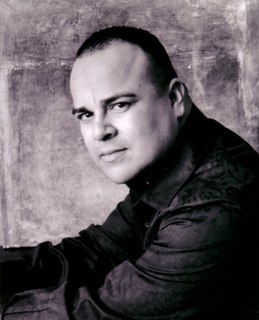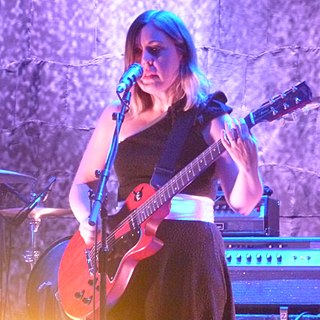A Quote by Jim Jarmusch
I love John Ashbery. He's the - really the poet laureate of English language poetry, whether he's given that or not, he is to me.
Related Quotes
It really takes growing up to treasure the specialness of being different. Now I understand that I've gotten to enjoy things that others have not, whether it's the laughter, the poetry of my Spanish language - I love Spanish poetry, because my grandmother loved it - our food, our music. Everything about my culture has given me enormous education and joy.
I certainly was surprised to be named Poet Laureate of this far-out city on the left side of the world, and I gratefully accept, for as I told the Mayor, "How could I refuse?" I'd rather be Poet Laureate of San Francisco than anywhere because this city has always been a poetic center, a frontier for free poetic life, with perhaps more poets and more poetry readers than any city in the world.
It is a tremendous honor to be named poet laureate, but one that I find humbling as well, because it's the kind of thing that makes me feel like - even as it's been bestowed upon me - I must continue to live up to what it means... Being the younger laureate in the age of social media is a new challenge.
The Color Purple really floored me. That book was just incredible because I loved the language. The biggest deal of that book was that I loved the poetry of broken English. Broken English and vernacular. It just floored me that you can actually capture the way people really talked. And I also really connected to the social class element.
Matt Mason must be declared the poet laureate of the Midwest! No other native son celebrates the overlooked America, its unsung citizens (from the anonymous poets to the part-time English teachers), and its expansive indigenous landscape, as well as he does. Mason's poetry is humorous when he wants to be quirky, heartbreaking when he wants to be eloquent, and though he moves effortlessly into other moods and geographies, he always returns to his first and most enduring love (and to what he knows best)-his homeland.
What the world wants, what the world is waiting for, is not Modern Poetry or Classical Poetry or Neo-Classical Poetry - but Good Poetry. And the dreadful disreputable doubt, which stirs in my own skeptical mind, is doubt about whether it would really matter much what style a poet chose to write in, in any period, as long as he wrote Good poetry.
Loneliness is necessary for pure poetry. When someone intrudes into the poet's life (and any sudden personal contact, whether in the bed or in the heart, is an intrusion) the poet loses his or her balance for a moment, slips into being what he or she is, uses his or her poetry as one would use money or sympathy. The person who writes the poetry emerges, tentatively, like a hermit crab from a conch shell. The poet, for that instant, ceases to be a dead person.




































